Art & Exhibitions
Marylyn Dintenfass’s Powerful New Paintings Are a Life and Death Matter
There is no escaping the circle of life.
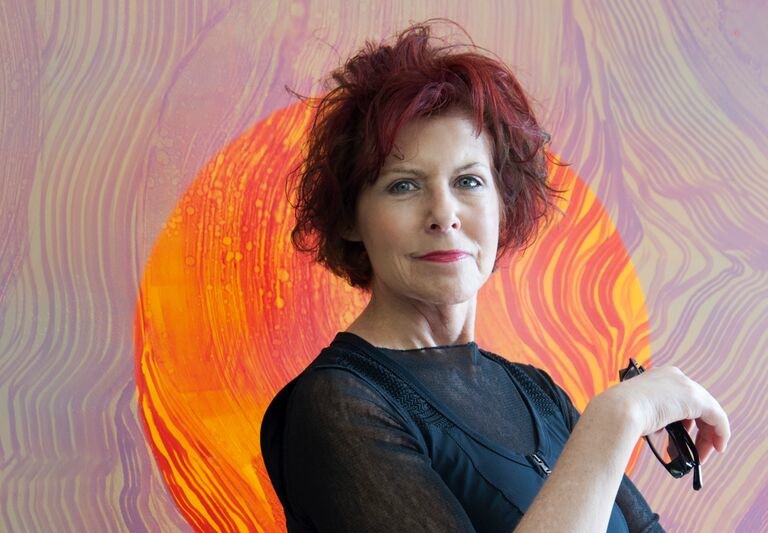
Photo: courtesy of the artist.
There is no escaping the circle of life.

Benjamin Genocchio

There are so many worthy shows in Chelsea right now that it is hard to know what to review. I can think of a dozen at least I’d like to write about, shows of artists young and older working on issues and concerns that reach out and touch us in various ways.
The glad news is that contemporary art making is stronger today than it ever has been, in spite of what some critics might say.
I was especially touched, however, by Marylyn Dintenfass’s show at Driscoll Babcock Galleries. This isn’t a fashionable show in any sense of the word. It is symbolic painting, for starters, and it’s painting by an artist who has been making art for most of her life. This is a show for people interested in how art is made and how ideas are painstakingly translated into images.
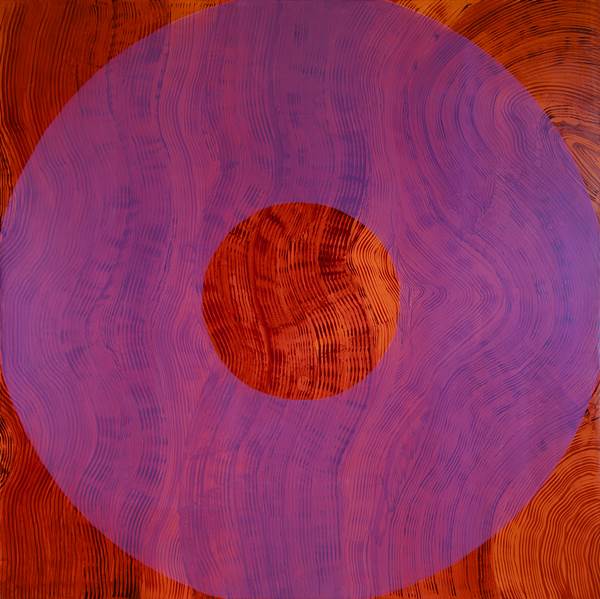
Marylyn Dintenfass at Driscoll Babcock.
Photo: courtesy of the artist/© Alvia Urdaneta
The advantage of that experience is obvious. It allows the artist a certain freedom to experiment with materials, like interference paint (a commercial-grade pigment creating iridescent qualities that also enables subtle variation and manipulation of a painted surface), but also the distance to stand back from her art, and herself, and connect with larger, mysterious forces that swirl within and around us. This is a show about mortality, a show of circular symbols which are, to me, a thinly veiled reference to life cycles.
The show is comprised of a dozen 77-inch square paintings, all of which depict circles in some shape or form. They are variously reminiscent of the iris of an eye, an oculus, a distant planet seen through a telescope, an archery target, or a nipple. In each case, however, a sense of swirling movement defined through color surrounds and off-sets a solid central circle.
Dintenfass wants to have a conversation about perspective, that much is clear. In spite of the apparent repetition of imagery, each picture provides a different visceral and visual experience. Partly, it is the varied color scheme and partly because your eye darts between multiple levels within the paintings, drawing you in at various depths depending on the finish. Much like the qualities of the interference paint, which the artist uses, you’re seeing nothing and everything simultaneously. These paintings are, in this formal sense, all about the meditative quality of color, how it vibrates and how revealing and concealing can impact our perspective.

Marylyn Dintenfass at Driscoll Babcock.
Photo: courtesy of the artist/© Stan Narten
But I think to treat these paintings as a purely formal exercise is limiting to their raw emotional impact and appeal. Each one is a life cycle, a circle of life, with its ebbs and flows, its ups and downs, its highs and lows and its eventual disappearance into nothingness. You can see this clearly in those works which look and feel very molecular, with undulating swirls that are almost liquid in design, and others that resemble the grain that’s found on the surface of wood.
Painting, here, is a visceral, organic, life and death matter. Rarely does visual beauty pack such a serious existential punch.
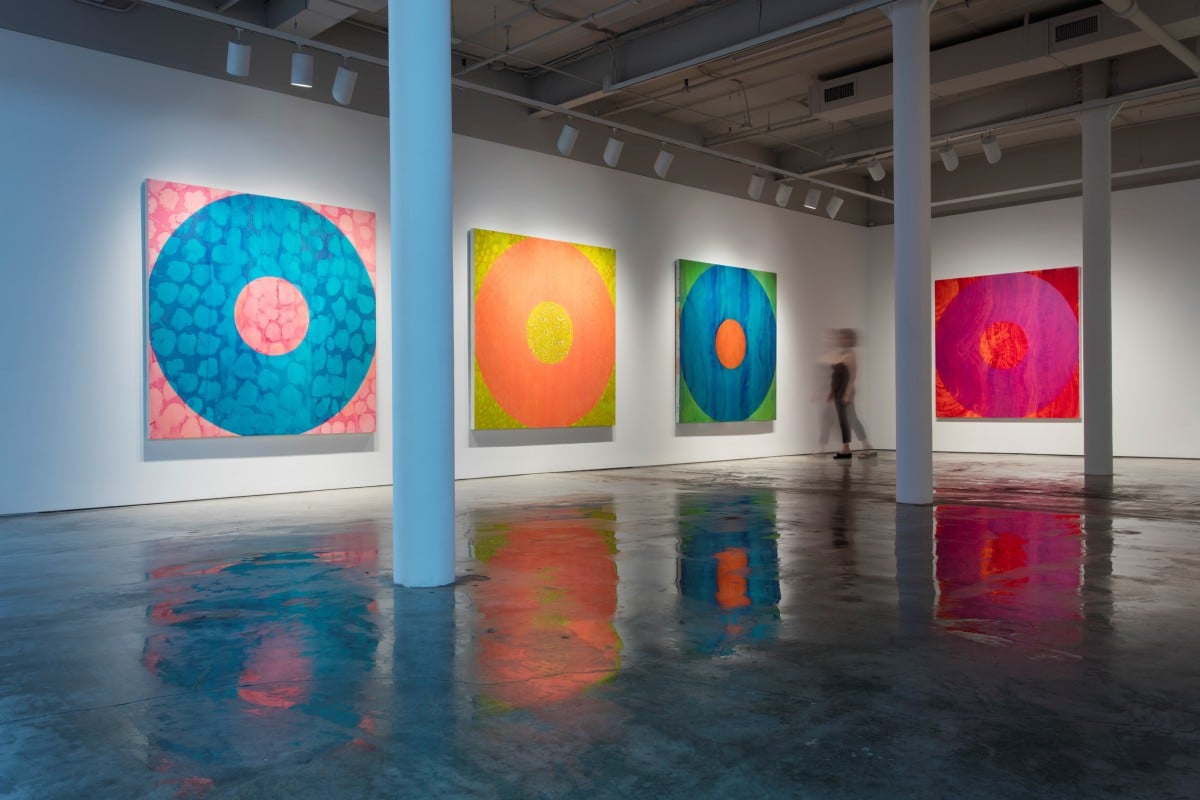
Marylyn Dintenfass at Driscoll Babcock.
Photo: courtesy of the artist/© Stan Narten

Marylyn Dintenfass at Driscoll Babcock.
Photo: courtesy of the artist//© Stan Narten
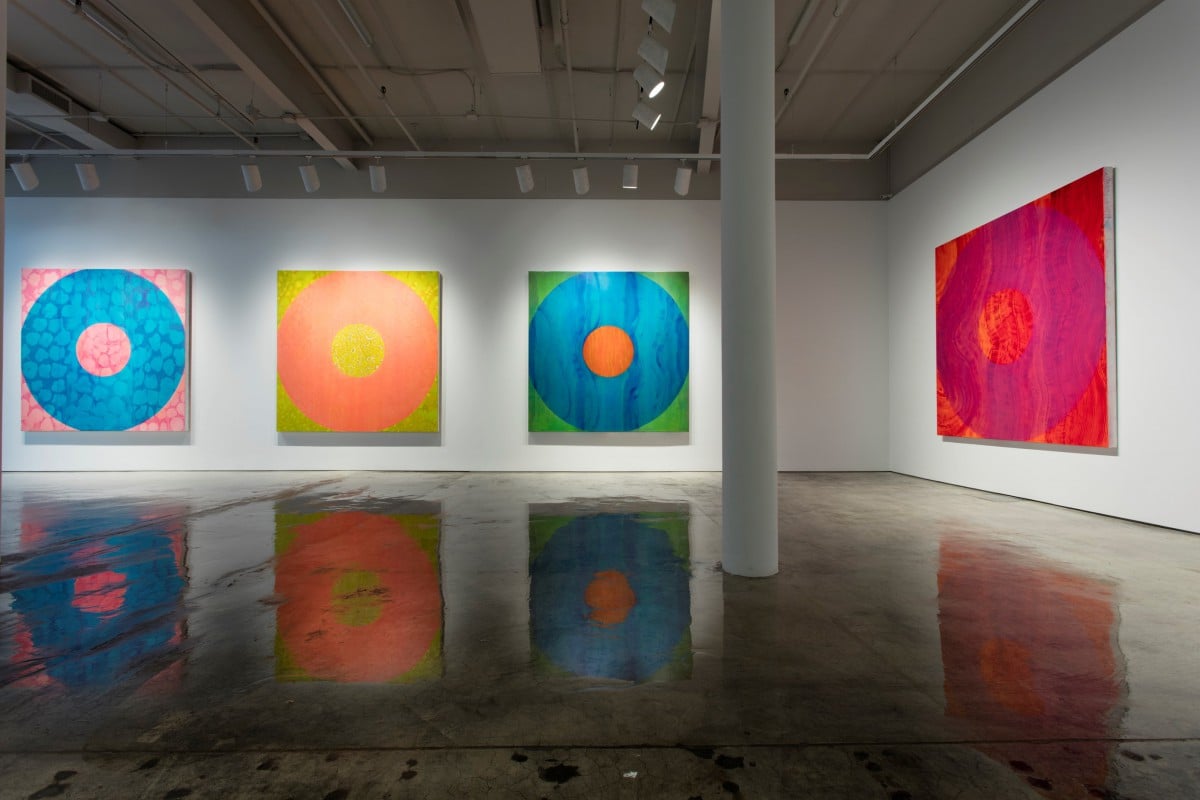
Marylyn Dintenfass at Driscoll Babcock.
Photo: courtesy of the artist/© Stan Narten

Marylyn Dintenfass at Driscoll Babcock.
Photo: courtesy of the artist//© Stan Narten
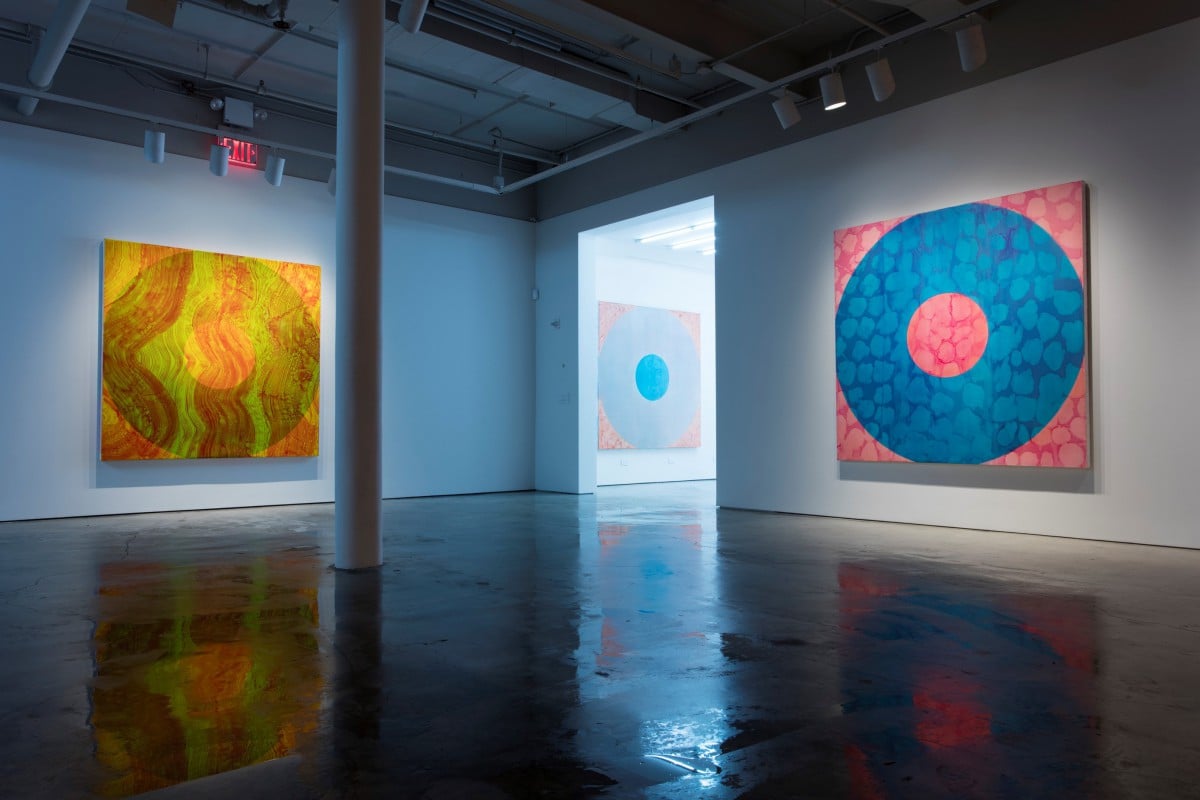
Marylyn Dintenfass at Driscoll Babcock.
Photo: courtesy of the artist/© Stan Narten
“Oculus,” Dintenfass’s latest body of work, is currently on view at Driscoll Babcock Galleries located at 525 W. 25th St. in New York, through October 24.